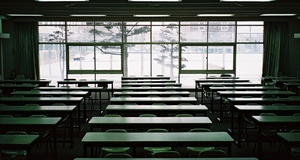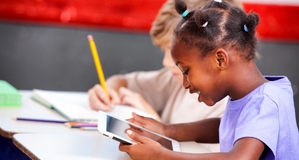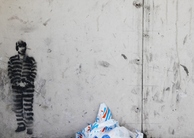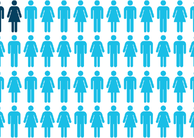Funding for Creative Education and its Socioeconomic Benefits: A Literature Review
By
2022, Vol. 14 No. 02 | pg. 1/1
IN THIS ARTICLE
KEYWORDS
AbstractThe United States spends more on public education per student than all but three countries in the world based on 2016 findings from the National Center for Education Statistics, and yet a similar study by the same agency three years later demonstrates that, by comparison, the literacy of those students is faring much worse than countries of lesser FTE (Full-time equivalent) funding - where approximately twenty-one percent of adults read under a 12th-grade reading level. Empirical data suggests that an increase in creative arts involvement among students leads to an increase in overall student participation in general education studies and further reduces the dropout rate and criminality of adolescents transitioning into adulthood - even when the students forgo a post-secondary education. In an era of sizeable social interactivity over digital media, where an immeasurable quantity of information is exchanged between billions of individuals every day, there is an urgent need for the greater proliferation of a well-educated populace through whom change may be exacted. This article will discuss the implications of expanded creative arts education having adequate funding, further seeking to demonstrate that more significant investment in arts education has a positive and profound influence on overall intellectual function and, ultimately, on people’s ability to contribute to society. In May of 2021, it is estimated that more than 3.5 million students will graduate from high school amidst a total of 4.1 million attending according to the National Center for Education Statistics (NCES); this is on track for previous years where the United States boasted an eighty-five percent adjusted cohort graduation rate (ACGR) between the start of the 2016 school year and the end of the 2018 school year. In the interest of specificity, the goal of this article is less to emphasize the effects of the graduation rate among secondary education students but rather to find its use as a benchmark. There has been a growing effort in this country to broaden the scope of funding and focus on using arts education to counteract any growth in dropout increase, and to that effect, there has been some success (Brown, 2017). There does, however, appear to be a gap in the literature regarding the overall effects an expanded arts education platform might have beyond its educational throes. The NEA touches on this matter in a way, citing that students with some arts-oriented education in primary and secondary schooling demonstrate a significant decrease in crime participation, drug use, and an increase in career prospects and performance (Elpus, 2013). The connection therein is drawn to represent the possibility that arts education, its increased funding, and growth in public institutions has an overarching effect on society beyond education, demonstrating an improvement in the matter of sociological, psychological, and economic implications, to name a few. An interdisciplinary analysis of this literature in its limited quantity, specifically from the perspective of creative-oriented education, will broaden the discussion on the positive impact of creative education beyond primary and secondary schooling. This article will discuss the implications of expanded creative arts education having adequate funding, identify critical contributors to regression or slow advances in exacting change to education policy, and further seek to demonstrate that stronger investment in arts education has a positive and profound influence on upward social mobility and individual autonomy that is socially acceptable.Literature ReviewSocioeconomic EffectsA common theme among literature examining arts education is to reframe a similar idea: arts education contributes to markedly higher academic performance, especially regarding mathematics and literature (Elpus 2013), (Brown 2017) – concepts which are frequently condensed for a particular field of study or discipline (Munday 2016). The consensus seems that a change in instructional methodology and funding is necessitated by the findings presented in the ever-growing data. In 2013, the NEA chartered a study from the University of Maryland to examine data potentially showing a correlation between the level of involvement in creative arts courses in adolescents and the decrease of later-year dropout rates (Elpus, 2013). The study found that between twenty and twenty-eight percent of all students (with deviation for certain variables) who invested academic time in some form of fine art education were more likely to maintain higher GPAs, and students that participated in visual arts or dance were between twenty-four and forty-seven percent less likely to engage in recreational drug use (Elpus, 2013). In recent years, there has been a growth in interest in connecting the amount of time students invest in fine arts as adolescents to a decrease in dropouts and higher earnings potential in post-graduate employment (Brown, 2017). Unfrtunately, it appears that studies for this metric (studies into post-secondary and career success) are lacking. Psychology & AcademicsSocioemotional skills, as defined by the William Penn Foundation, are an element of growth most prominent in students of an average age of nine, who demonstrate a greater tolerance for the sentiments and interests of others compared to older peers – who also show a heightened awareness of personal interest in academic pursuits and an awareness of their overall skill; they argue that age could be among the most critical factors for determining the effectiveness of a system designed to capitalize on these findings (Holochwost et al., 2016). Kim, Choe, and Kaufman (2019) argue that character education directly affects creative education and is quantifiable in how moral dilemmas are resolved; by recognizing the significance of character-driven decision-making and expounding on individual curiosity as a direct result. In areas where empirical evidence may not show a clear line of influence between creative education and social or academic growth, advanced methods of cognitive neuroscience and technological analysis of specific data sets can (and has) proven to be a demonstrative addition to the study of arts education and its efficacy (Zhou, 2018, pp. 22-23) – specifically, the application of creative tasks involving practical or analytical functions in order to stimulate the parts of the brain necessary to complete complex tasks. The effects can be substantiated in biological differences between those with training and those without formal creative instruction. Similarly, the nature of physical activity and sports on students’ engagement and social adequacy has been well established. The similarity in benefits from regular sport and physical training to those of music and dance is, while underexamined, visible in current literature (Tomporowski and Pesce, 2019). Funding, Equity, and CrimeA paper published on the matter of crime rates influenced by tertiary education eligibility identifies a correlation between the rising eligibility – or access – to tertiary education in Sweden with a marked decrease in municipality crimes (Nordin 2018). There could then be a connection drawn between the broader availability of creative curriculums and the NEA’s findings regarding art studies and reduced crime participation. A study published in the Economic Journal of the Royal Economic Society found that for property crime, which amounts to more than three-fifths of all crime, there was a considerable reduction in misconduct overall when minors are granted more access to secondary education (wide course variety and academic aid), but especially specific to children that would be halfway through their secondary education ages fourteen through seventeen (Machin, Marie, Vujic, 2011). With the understanding that a thorough and complete secondary education increases the potential for success in later life and the potential as mentioned above to reduce crime in localized instances, it is reasonable to postulate that measures that improve graduation rates and student engagement on a social and creative level could have precipitating benefits that are not yet measured. The data suggest that an increase in creative arts involvement among students between the ages of fourteen and seventeen leads to an increase in overall student participation in general education studies and further reduces the dropout rate and criminality of adolescents transitioning into adulthood - even when the students forgo a post-secondary education (Elpus, 2013). Expanded accessibility may also be substantiated by greater and equal funding for certain districts where property taxes prove to be inadequate and by negating financial barriers to tertiary education. The United States spends more on public education per student than all but four countries in the world based on findings from the National Center for Education Statistics, and that by comparison, the literacy of those students is faring worse than countries of lesser FTE (Full-time equivalent funding, or the average annual cost of a student), several of whom spent more than $3,000 FTE funding less than the United States (Hussar et al., 2020, pp. 269-270). The disparity between funding and literacy might suggest that the way funding is dispersed may be the “x-factor.” Funding for public schools increased in the United States from 2001 to 2016 (despite a temporary drop-off following the 2008 recession), but most of that funding (ninety-two percent) has been at the state and local levels, eighty-two percent of which was from property taxes into local revenue (Hussar, et al., 2020). This metric might suggest that regions of wealthier populations and higher property taxes will have substantial contributions on local education systems, and that local education systems may reduce or omit shared funding to departments with arts curriculums, not to mention the fact that such funding policies reduce the amount of public-school funding to poorer and more racially diverse districts driving down graduation rates and ultimately hurting all forms of education – not just creative. The nature of how much spending per FTE the United States advertises compared to the international community might be more digestible given better transparency on where the money is spent. PerspectiveThe question “Does an art-inclusive curriculum benefit students long term?” has been asked before, but the lack of literature studying those effects leaves the question unanswerable from a robust and empirical standpoint. Kids are often told that the prospect of college and a subsequent career should be their primary focus. Despite that impression, approximately half of one million students in the United States, grades 10 through 12, dropped out of high school in the 2016 – 2017 school year (McFarland, et al., 2019). While the number appears to have plateaued, the number of low-literacy individuals will continue to grow at a linear pace if unaddressed in a meaningful and effective way. The influence that physical education has on student performance and graduation rates is well-established, and even those that omit sports of higher proficiency or even college develop fundamental skills and habits which are beneficial in the long term. The same activities having benefits to mental health cannot be overstated, nor can the connection those benefits have to the arts and their very similar neurological and psychological effects (Tomporwski & Pesce, 2019). Teachers of public schools, even those that are unsure about the full measure of what it means to teach creativity, agree that such teaching is necessary for adequate primary education (Hoşgörür & Bilasa, 2009). The late Sir Ken Robinson (2014) identifies creativity as a measure of ideas that are unique or original and maintain some level of value, and that the only metric for discerning such originality or value is subjective. From a neurological and psychological standpoint, there is no consensus on an inherited tendency towards creativity, but instead that it seems possible that creativity is a teachable or nourishable part of an individual’s intelligence (Zhou, 2018, p. 24). With differing circumstances for different people, the issue lies with identifying the criteria under which one is analyzed and when those criteria should be applied. Creativity can thus be measured on a case-by-case basis rather than holistically to the benefit of each student. Unfortunately, due to a gap in research, it is hard to tell what is most beneficial to the development of students and what is not. The larger perspective seems to be that the benefits to student development and post-secondary life are worthy of investment and study, even when considering the nuanced instances where visual arts might have detrimental effects (Elpus, 2013); however, this further necessitates the need for a broader, more detailed understanding of those implications. It is impossible to avoid discussing potential negatives behind a shift in policy, but the weight of any negatives is also not fully understood. Eight percent of all funding for public schools comes from federal funding; the rest chiefly comes from property taxes. While it is not a new revelation, the nature of poorer districts having consequently underfunded schools means that there is less available funding to spend on students, even if the average FTE expenditure for that school falls in acceptable ranges – specifically in this case, it might be the choice of having affordable school lunches over a sports or music program, for example. In turn, the current funding policy could be detrimental to that district’s overall student engagement or graduation rate. An absence of empirical data in this regard means it is difficult to paint a clear picture if this is true. The NCES provides comprehensive information regarding total expenditures for the country and provides comparative data for other nations but does not go as far as dissecting expenses for specific districts or how those funds are spent per curriculum or department (McFarland et al., 2019). Without access to anecdotal information from particular school districts, it would be impossible to analyze if the differences in funding distribution would have any meaningful effect. ConclusionWithout more empirical data and the lack of redress for funding inequity, it is difficult to tell how dramatically large-scale creative education reforms would benefit individual students or social change. Despite that, the evidence seems to point in the direction that primary and secondary school students benefit from arts curriculum much in the same way they benefit from physical education. The benefits of both extend to general academic performance in that a student’s overall literacy or engagement is much higher, and social efficacy, which is acceptable by modern standards, is sufficient for respectful and empathetic behavior (Holochwost et al., 2016). If the nature of education is to provide a foundation from which students may grow into social and economic contributors, it is imperative that education is provided at the highest possible quality to all participants of primary and secondary public-school systems, regardless of any differences in community wealth. If creative education benefits a student’s academic and social adequacy measurably, and in that same vein, reduces the high-school dropout rate by even a narrow margin, its inclusion into the standard public education curriculum is necessary. An expansion of research is needed to study these possibilities further and provide insight into all aspects of arts education at the primary and secondary levels – to support the creation of reliable creative education systems grounded in evidence supported by sociological, psychological, and economic findings. ReferencesBrown, K. (2017). The arts ad dropout prevention: The power of art to engage [White paper]. Clemson, SC: National Dropout Prevention Center/Network. Retrieved April 1, 2021, from www.dropoutprevention.org/wp-content/uploads/2017/arts-and-dropout-prevention-2017-10,pdf Holochwost, S., Palmer Wolf, D., Fisher, K., & O’Grady, K. (2016). The socioemotional benefits of the arts: A new mandate for arts education. Philadelphia, PA: William Penn Foundation. Retrieved April 1, 2021, from https://williampennfoundation.org/sites/default/files/reports/Socioemotional%20Benefits%20of%20the%20Arts_Summary.pdf Hoşgörür, V., & Bilasa, P. (2009). The problem of creative education in information society. Procedia - Social and Behavioral Sciences, 1(1), 713–717. https://doi.org/10.1016/j.sbspro.2009.01.125 Hussar, B., Zhang, J., Hein, S., Wang, K., Roberts, A., Cui, J., Smith, M., Bullock Mann, F., Barmer, A., and Dilig, R. (2020). The Condition of Education 2020 (NCES 2020-144). U.S. Department of Education. Washington, DC: National Center for Education Statistics. Retrieved March 18, 2021, from https://nces.ed.gov/pubsearch/pubsinfo. asp?pubid=2020144. Kim, S., Choe, I., & Kaufman, J. C. (2019). The development and evaluation of the effect of creative problem-solving program on young children’s creativity and character. Thinking Skills and Creativity, 33. https://doi.org/10.1016/j.tsc.2019.100590 Liss, J. M. (2013). Creative Destruction and Globalization: The Rise of Massive Standardized Education Platforms. Globalizations, 10(4), 557–570. https://doi.org/10.1080/14747731.2013.806741 Machin, S., Marie, O., & Vujić, S. (2011). The Crime Reducing Effect of Education. The Economic Journal, 121(552), 463–484. https://doi.org/10.1111/j.1468-0297.2011.02430.x McFarland, J., Cui, J., Holmes, J., and Wang, X. (2019). Trends in High School Dropout and Completion Rates in the United States: 2019 (NCES 2020-117). U.S. Department of Education. Washington, DC: National Center for Education Statistics. Retrieved April 3, 2021, from https://nces.ed.gov/pubsearch. Munday, I. (2016). A Creative Education for the Day after Tomorrow. Journal of Philosophy of Education, 50(1), 49–61. https://doi.org/10.1111/1467-9752.12172 Nordin, M. (2017). Does Eligibility for Tertiary Education Affect Crime Rates? Quasi-Experimental Evidence. Journal of Quantitative Criminology, 34(3), 805–829. https://doi.org/10.1007/s10940-017-9355-8 Steelman, V. M. (2014). Pursuing Excellence Through Creative Education. AORN Journal, 100(3), 235–237. https://doi.org/10.1016/j.aorn.2014.06.008 TED Conferences. (2007). Do schools kill creativity? | Sir Ken Robinson. YouTube. https://www.youtube.com/watch?v=iG9CE55wbtY. Tomporowski, P. D., & Pesce, C. (2019). Exercise, sports, and performance arts benefit cognition via a common process. Psychological Bulletin, 145(9), 929–951. https://doi.org/10.1037/bul0000200 Tsai, K. C. (2015). A Framework of Creative Education. In Education, 21(1), 137–155. https://doi.org/10.37119/ojs2015.v21i1.193 Wang, G.-H., Li, W.-D., & Dou, K. (2020). Extracurricular sports participation increases life satisfaction among Chinese adolescents: A moderated mediation model. Social Behavior and Personality: an International Journal, 48(8), 1–11. https://doi.org/10.2224/sbp.8993 Zhou, Kai (2018). What cognitive neuroscience tells us about creativity education: A literature review. Global Education Review, 5(1), 20-34. Suggested Reading from Inquiries Journal
Inquiries Journal provides undergraduate and graduate students around the world a platform for the wide dissemination of academic work over a range of core disciplines. Representing the work of students from hundreds of institutions around the globe, Inquiries Journal's large database of academic articles is completely free. Learn more | Blog | Submit Latest in Education |
















